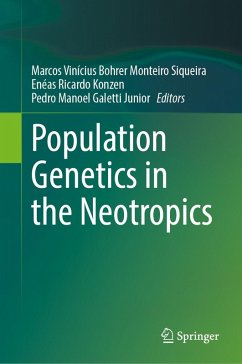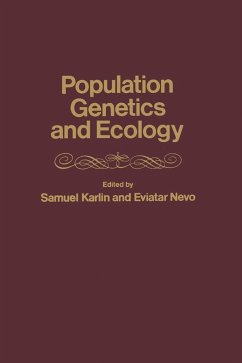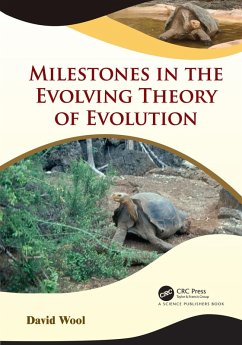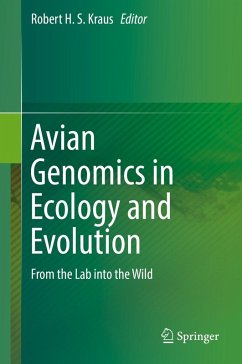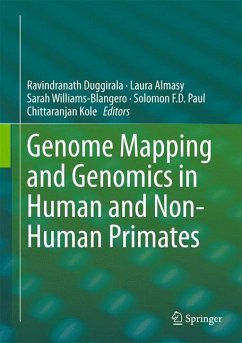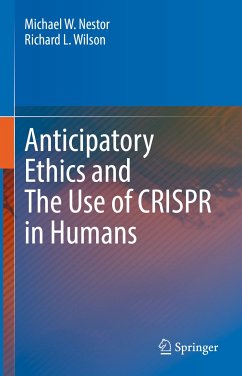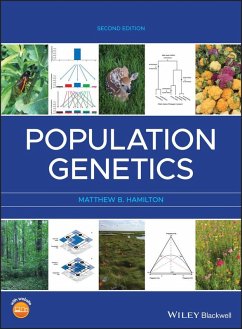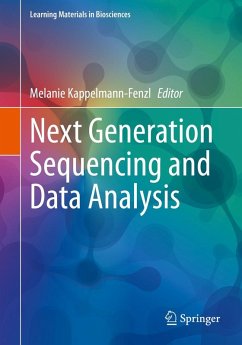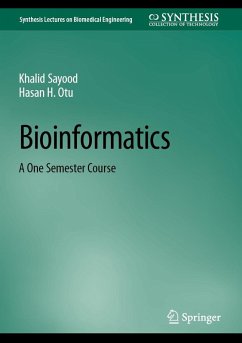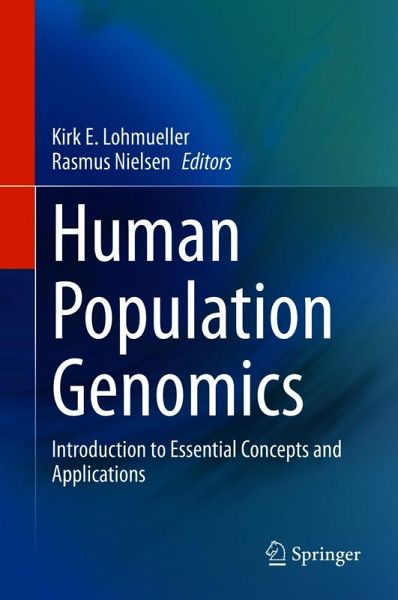
Human Population Genomics (eBook, PDF)
Introduction to Essential Concepts and Applications
Redaktion: Lohmueller, Kirk E.; Nielsen, Rasmus
Versandkostenfrei!
Sofort per Download lieferbar
60,95 €
inkl. MwSt.
Weitere Ausgaben:

PAYBACK Punkte
30 °P sammeln!
This textbook provides a concise introduction and useful overview of the field of human population genomics, making the highly technical and contemporary aspects more accessible to students and researchers from various fields.Over the past decade, there has been a deluge of genetic variation data from the entire genome of individuals from many populations. These data have allowed an unprecedented look at human history and how natural selection has impacted humans during this journey. Simultaneously, there have been increased efforts to determine how genetic variation affects complex traits in ...
This textbook provides a concise introduction and useful overview of the field of human population genomics, making the highly technical and contemporary aspects more accessible to students and researchers from various fields.
Over the past decade, there has been a deluge of genetic variation data from the entire genome of individuals from many populations. These data have allowed an unprecedented look at human history and how natural selection has impacted humans during this journey. Simultaneously, there have been increased efforts to determine how genetic variation affects complex traits in humans. Due to technological and methodological advances, progress has been made at determining the architecture of complex traits.
Split in three parts, the book starts with the basics, followed by more advanced and current research. The first part provides an introduction to essential concepts in population genetics, which are relevant for any organism. The second part covers the genetics of complex traits in humans. The third part focuses on applying these techniques and concepts to genetic variation data to learn about demographic history and natural selection in humans.
This new textbook aims to serve as a gateway to modern human population genetics research for those new to the field. It provides an indispensable resource for students, researchers and practitioners from disparate areas of expertise.
Over the past decade, there has been a deluge of genetic variation data from the entire genome of individuals from many populations. These data have allowed an unprecedented look at human history and how natural selection has impacted humans during this journey. Simultaneously, there have been increased efforts to determine how genetic variation affects complex traits in humans. Due to technological and methodological advances, progress has been made at determining the architecture of complex traits.
Split in three parts, the book starts with the basics, followed by more advanced and current research. The first part provides an introduction to essential concepts in population genetics, which are relevant for any organism. The second part covers the genetics of complex traits in humans. The third part focuses on applying these techniques and concepts to genetic variation data to learn about demographic history and natural selection in humans.
This new textbook aims to serve as a gateway to modern human population genetics research for those new to the field. It provides an indispensable resource for students, researchers and practitioners from disparate areas of expertise.
Dieser Download kann aus rechtlichen Gründen nur mit Rechnungsadresse in A, B, BG, CY, CZ, D, DK, EW, E, FIN, F, GR, HR, H, IRL, I, LT, L, LR, M, NL, PL, P, R, S, SLO, SK ausgeliefert werden.




